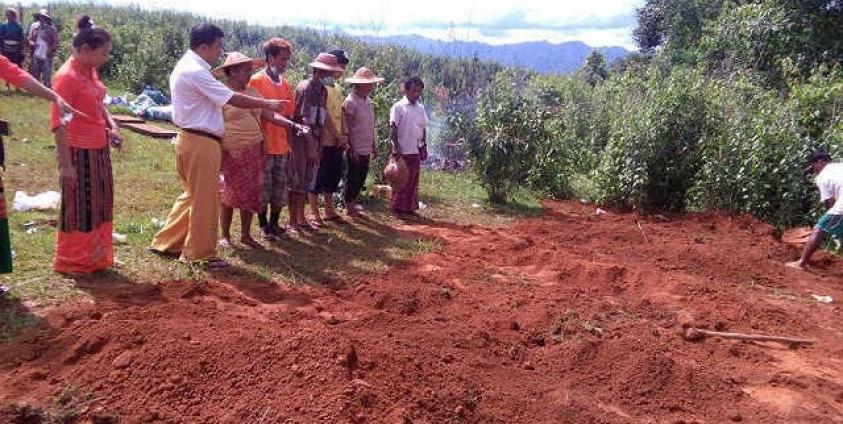Lt-Gen Mya Tun Oo, the serving chief of Burma’s military intelligence, confirmed yesterday that government soldiers were indeed responsible for the murder of five men from Mong Yaw in Lashio Township, northern Shan State.
Seven Mong Yaw villagers were killed late last month. According to eyewitnesses, five were arrested by a unit of Burmese government forces on June 25, and later found buried in shallow graves near an army camp. The other two were shot dead that same day when they failed to stop their motorbike at an army checkpoint in the town.
“The court martial found that they [soldiers] violated the rules, and failed to follow certain procedures that led to the death of the victims during interrogation,” Lt-Gen Mya Tun Oo admitted at a public news conference in Rangoon.
He said a court martial was in progress, and that the verdict would be made open to the public.
Reached for comment, Sai Wan Leng Kham, an Upper House MP from the Shan Nationalities League for Democracy (SNLD), said he was relieved that the military had finally admitted its role in the crime, and had promised to bring the culprits to justice.
“The military has never admitted to their crimes in the past,” he said. “The reason they did is because the people of Mong Yaw have fought fearlessly for justice.”
The MP expressed sympathy for the families of the victims, noting that they had lost the breadwinners of their individual households.
“Will the military pay them compensation?” Sai Wan Leng Kham questioned. “We’ll have to wait and see.”
According to Lt-Gen Mya Tun Oo, the military will now assume the role of caring for and supporting the victims’ families. However, he gave no further details.
On July 18, Shan Herald reported that the Tai Youth Organization, Kachin Youth Organization, Ta’ang Women’s Organization, and Ta’ang Students and Youth Union led over 1,000 protestors in a rally in Lashio, demanding justice for the murder victims.
In a statement on July 20, Amnesty International urged the National League for Democracy-led government to take action against those who were involved in the incident.
“While it’s positive that the authorities are investigating this case, the reality is that all too often victims and their families are denied access to justice, truth and reparations, and have faced reprisals when reporting cases of military abuse. This has to stop and Myanmar’s [Burma’s] new government must make it clear that no one is above the law,” said Rafendi Djamin, Amnesty’s director for Southeast Asia and the Pacific.
“This case is an important reminder of the need to reform the military and judicial systems in Myanmar,” he added. “Although it is important that steps are taken to ensure those responsible for serious human rights violations are held to account, military tribunals are not the solution. The authorities in Myanmar must take immediate action to ensure that human rights violators can be effectively tried before independent, civilian courts – anything less would only serve to perpetuate the cycle of impunity.”
BY: Shan Herald Agency for News (SHAN)







